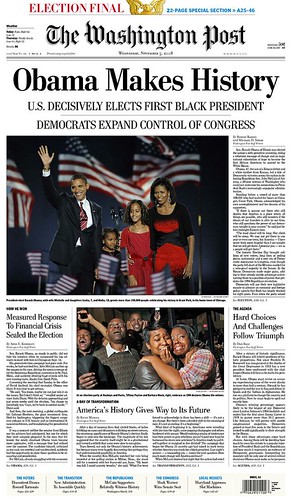With uncharacteristic fanfare and ballyhoo, NPR’s Talk of the Nation aired a segment last week featuring what was touted as an opportunity for listeners to ask questions and voice concerns over the issue of the politicizing of the content of public broadcasting programming with NPR’s ombudsman, Jeffrey Dvorkin. I was looking forward to an intelligent, informative dialogue addressing my fears about what appeared to be the genesis of a right-wing vendetta against public media. What actually occurred was a watered-down twenty minute yawner that imparted little useful information and didn’t come close to addressing the issue in any kind of depth. The highlight of the segment was Neal Conan’s tapdance to assure an irate frequent caller that there was indeed no conspiracy in place to keep that caller and his opinions off the air for the last several months.
Did NPR get a flood of negative feedback about the segment? Possibly…because today, for the second time in less than a week, Talk of the Nation made another stab at addressing listeners’ concerns over Congress’ politically-charged proposals to cut funding for public broadcasting. Having heard the lead-in to the program, I made sure I had my radio close at hand as I went about my daily chores. I was sure that this time, important ideas would be exchanged, with concerned listeners lighting up the switchboard, with savvy questions and informed opinions. Once again, I was sorely disappointed.
The featured guest was Nick Gillespie, editor-in-chief of "Reason" Magazine—a Libertarian outlet with a mission statement that reads, in part:
The mission of Reason Foundation is to advance a free society by developing, applying, and promoting libertarian principles, including free markets, individual liberty, and the rule of law. We use journalism and public policy to change the frameworks and actions of policymakers, journalists, and opinion leaders.
Did Neal Conan choose a distinguished Libertarian guest in an effort to sidestep the Democrat vs. Republican, Right vs. Left slant on the issue? Or did he choose Mr. Gillespie in order to advance a particular agenda…specifically, that Public Broadcasting would not suffer, and, indeed, would be better off without federal funding? Since Mr. Gillespie came off as the most reasonable voice for most of the program, it’s likely his oft-repeated opinion that Public Broadcasting would not be injured by the removal of government funding was intended to be the central point of the segment.
The "keep government funding" plea was presented by U.S Representative Edward Markey (D-MA), who adhered strictly to the Democratic "Don’t let the Republicans Kill Big Bird!" party line. We all know that this is an (anemic) attempt to hoist the Right on its own petard of lining up support by exploiting the hot-button, emotional issues in a political conflict. (Why do the Democrats suck so badly at that?) His presentation came off as whiney and weak, and he was cut off after about a minute and a half by a judiciously inserted commercial break. After the break, Neal’s featured guest, Mr. Gillespie, was allowed to contemptuously disparage Mr. Markey’s presentation, without the Congressman having the opportunity to engage in any kind of give and take about the merits of his argument.
Skillfully, by presenting Nick Gillespie as the most reasonable voice on the topic, the program almost succeeded in softening my opinion toward the absence of government funding for public broadcasting…without ever discussing the actual politics behind the debate. I say "almost," because Mr. Gillespie just didn’t know how to quit while he was ahead. Mere minutes from the end of the program, in response to a caller’s suggestion that government funding might actually provide a better environment for objective and balanced reporting than corporate or private funding, these words escaped Mr. Gillespie’s lips:
"The worst journalism in the world is journalism that is objective and balanced. You can’t bring passion to that…"
Excuse me?
Obviously, I thought, this guy slept through journalism class. Then I went online and read his bio, and found he didn’t actually attend journalism class. In fact, he holds an MA in English with an emphasis in creative writing. What the hell does he know about journalism? This man has accepted as the rule, what passes for journalism in twenty-first century America. Journalism is not supposed to be about passion. Editorials are the forum for passion. Journalism is the facts, the story, finding out what might otherwise not have been known and telling about it. NOT opining about it. Reporting, and letting the public make its own decisions based on the information provided by responsible, balanced, objective journalism. Right here is where they lost me, whoever was trying to set the hook and reel me in.
So, this is how NPR tackled the issue of the political debate surrounding government funding for Public Broadcasting. By staying as far away from the actual conflict as possible, copping a stiff upper lip, and assuring listeners that if federal funding goes away, public broadcasting has more than enough remaining resources to rise from the ashes like a phoenix. This is one time when I wish the" objective and balanced" programming of NPR had cracked, just a little, under the political weight being put on it, and aired a more lively (read, realistic) debate on the issue. One can only wonder what outside pressures combined to inspire the little farce that was aired on today’s Talk of the Nation. Sorry, Neal!


















